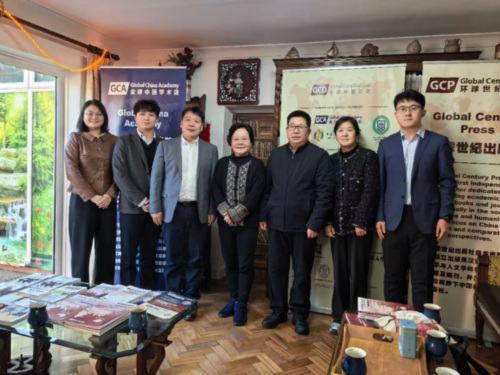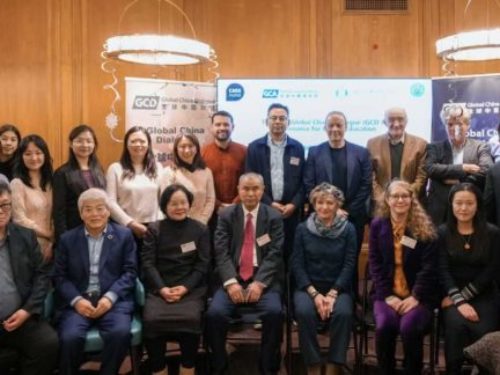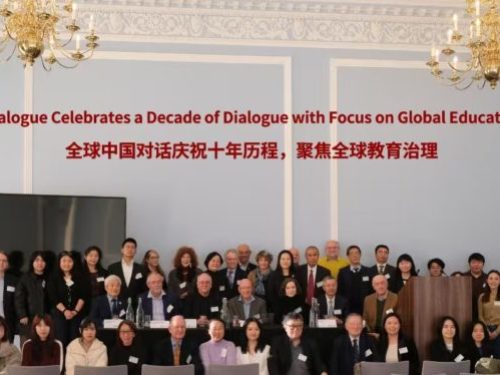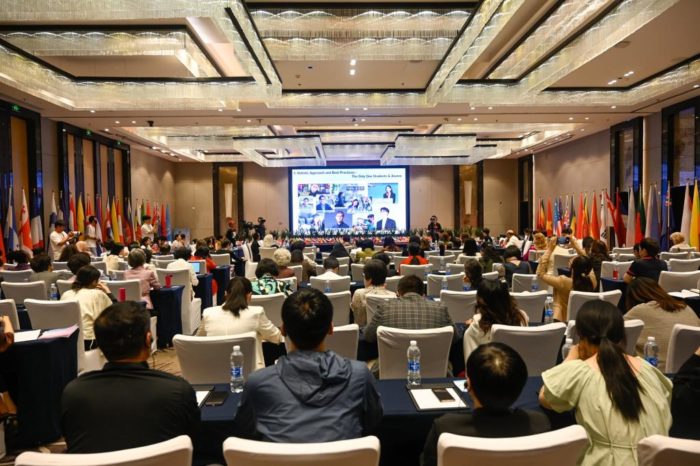

Maria Jaschok 12 June 2024
On Attending
The 11th World Women University Presidents Forum (WWUPF) 2024,
held in Zhengzhou, Henan, May 25th–29th.
What better way for this new chair of the GCA Board of Trustees to introduce herself, albeit in a rather brief and generally worded presentation, than by means of an academic, which is also a most personal, gendered lens through which I tend to observe, filter, and interpret the complex and divergent realities around me. I have just returned from China where one of my tasks was participation in the 11th World Women University Presidents Forum (WWUPF). An initiative of the Communication University of China (CUC), the WWUPF was launched in August 2001. Its aim is ‘to pool the strength of women university presidents all over the world and to create an international platform for them to communicate and collaborate, and to share new ideas and thoughts in the fields of higher education development and women leadership promotion’ (Brochure, Communications University of China/Huanghe S&T University, 2024).
In addition to ten fora in China, eleven sub-fora have been held around the world. In just over ten years of internationally oriented female-gendered academic discourses, by now with a notable track-record of intellectual and transformative traction, the WWUPF has accumulated considerable credibility. The annual fora clearly benefit from cross/multi-disciplinary and intersectional expertise, and the quality of discourses around significant, topical core themes and critical policy fault lines relevant to gender and Higher Education have garnered close attention from international institutions, as evidenced by the annual participation of representatives from UN agencies and various multilateral organizations.
The 2024 Forum took place in Zhengzhou, Henan, and was dedicated to the theme of ‘Multicultural Backgrounds and Common Development. The Responsibility of Higher Education Leadership.’ Senior UN and UNCESCO leaders sent messages of support which were live-streamed as part of a festive and wide-ranging commencement ceremony which heralded a four-day event of keynote speeches, presentations, and discussions. Artistic performances, exhibitions, and visits to museums and historic sites in Henan rounded off informative cultural excursions, making evident once more the significance of the notion of 中原 zhongyuan culture in relation to the current Chinese government focus on national cultural confidence 文化自信 wenhua zixin.
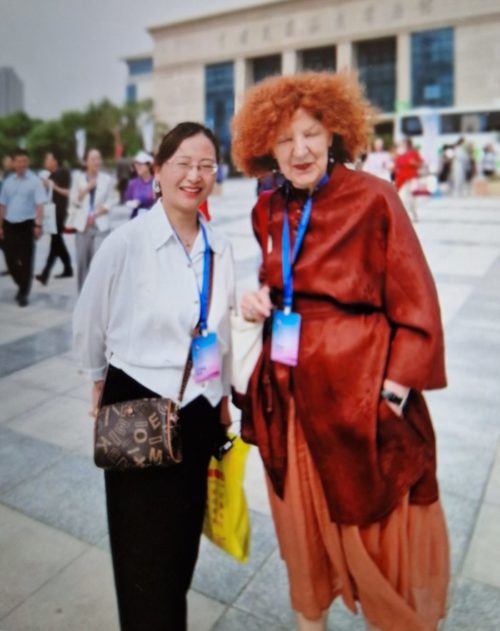
I participated in a panel organized around issues of ‘Openness of Higher Education and Continuity of Civilization’ with a paper on “Studying Elsewhere – cultures of pedagogy, traditions of learning, and fault lines of communication.” The images accompanying this text may help convey the atmosphere of an event that brought together academic, administrative, and political leaders for serious purposes, including many outstanding women leaders of diverse higher education institutions from around the globe. However, most notable was the frequently reiterated pride expressed by Forum participants from such a diversity of national, ethnic, political, and academic backgrounds, a shared pride in having created a meaningful consensus on the importance of an initiative that continues to make a difference despite remarkable global and local challenges.
The transformative powers of female education and its relevance to furthering the SDGs adopted by the UN in 2015 are near-universally shared principles, driving facilitation of enduring institutions for gender justice. Yet such principles are also heavily contested, in certain contexts negated as detrimental to societal development. The WWUPF provides ongoing campaigns for female education at the highest level with solid evidence of the positive impact of capable female leadership in senior positions as it continues to challenge the ongoing underrepresentation of authoritative female voices. The founding initiative for these timely fora, and now their increasingly impactful linkages with international academic institutions and networks, originated from Professor Liu Jinan, then the female president of CUC, making the global mission of the WWUPF all the more remarkable and poignant.
Lastly, but by no means least, for me the most profound and moving experience, both at a personal and autobiographical level, was my return, after an absence of five years, to a part of China with which I had been intensely involved for well over twenty years of research and fieldwork. It was gratifying to have the opportunity once again to listen, interact, learn, observe, and renew contact with old friends and colleagues, whose friendship, knowledge, and incredible generosity are inextricably linked with my understanding of Chinese society.

Photos sources: https://www.hhstu.edu.cn/info/1052/22194.htm, https://news.xmu.edu.cn/info/1003/471011.htm; text provided by the participant.

